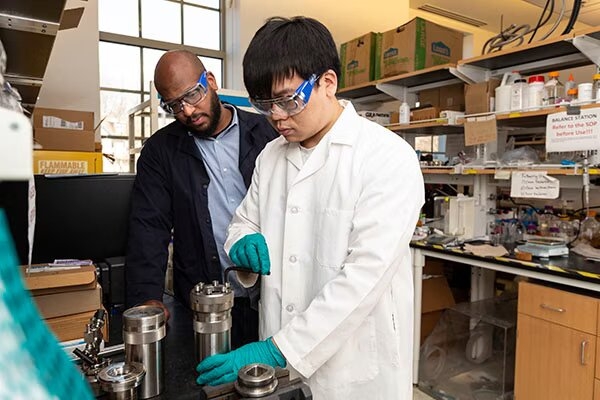Lignin, a complex organic polymer, is one of the main components of wood, providing structural support and rigidity to make trees strong enough to withstand the elements.
Lignin, a complex organic polymer, is one of the main components of wood, providing structural support and rigidity to make trees strong enough to withstand the elements. When transforming wood into paper, lignin is a key ingredient that must be removed and often becomes waste.
Marcus Foston, associate professor of energy, environmental & chemical engineering in the McKelvey School of Engineering at Washington University in St. Louis, is exploring how to add value to lignin by breaking it down into small molecules that are structurally similar to oxygenated hydrocarbons. These renewable chemicals are key components in many industrial processes and products, but they are traditionally sourced from non-renewable petroleum.
Foston’s study of lignin disassembly, done in collaboration with Sai Venkatesh Pingali, a neutron scattering scientist at Oak Ridge National Laboratory (ONRL), was published Jan. 17 in Sustainable Chemistry & Engineering.
Read more at Washington University in St. Louis
Image: Marcus Foston (left) and collaborators are exploring how to use lignin, a common waste product of paper pulping, as a source of renewable alteratives to petroleum-derived chemicals. (Photo: Jerry Naunheim via Washington University in St. Louis)




